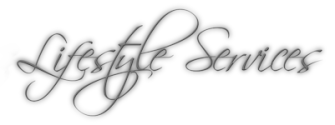Around 10% of GDP is spent on healthcare in Spain, and the country is ranked 6th in the EU for its doctor/patient ration, with approximately 4 doctors per 1,000 people.
The public healthcare service, despite severe cuts as a consequence of the economic crisis of the last few years, is still rated among the world’s best.
If you are a non Spanish national living in Spain, you are entitled to state healthcare, if you are:
- Employed or self-employed and pay social security.
- In receipt of certain state benefits.
- Recently divorced or separated from a partner who pay social security.
- A child or pregnant.
- Under 26 and studying.
- A state pensioner (over 65).
An alternative to state healthcare in Spain, is to take out health insurance to get access to Private Healthcare in Spain.
Healthcare When Visiting Spain
If you are a visitor in Spain from the UK, and EEA country or Switzerland, and are insured by or covered by a statutory social security scheme in your home country, you are entitled to healthcare in Spain free or at a reduced cost, for treatment that becomes necessary during your visit, e.g. due to illness or an accident. This is accessed via the EHIC – European Health Insurance Card scheme. The card is issued free of charge and gives travellers access to healthcare in all EEA member states for the duration of validity of the card. The term of validity of the card varies according to the issuing country.
Registering for healthcare in Spain
With your social security number you will also be given a certificate stating that you’re entitled to medical care. Take the certificate, your passport and NIE number (foreigner’s identity number) along to your local health centre. You can then register with a doctor and apply for a health card (Tarjeta Sanitaria Individual or TSI). The health centre will also be able to arrange for you to get a Sistema de Informacion Poblacional or SIP card. You’ll need to show it every time you visit a clinic, hospital or collect a prescription from a pharmacy.
Going to the doctor in Spain
In Spain, you get primary heath care through a health centre (Centro de Salud or Centro de Asistencia Primaria or CAP), or a general doctor (Médico de Cabecera).
You have the right to be accompanied by a friend or relative during consultations. You can change doctors easily, just by re-registering.
Going to see a specialist
If you want to be seen by a medical specialist in Spain you’ll need to be referred by a family doctor. If you have private health insurance, you’ll be able to see a specialist much faster than going through the public system.
Hospitals in Spain
In an emergency you go straight to a hospital. The Spanish word for A&E or ER is Urgencias.
If you want to get any other type of hospital treatment, you’ll need a referral from a doctor. There are public and private hospitals. Only the public hospitals provide free treatment. When you go to hospital you’ll need to show your social security card, EHIC, or proof of private insurance.
If you are discharged from a hospital and need medication, you take the hospital medical report to a pharmacy for the prescription to be fulfilled,
Pregnancy, birth and maternity care in Spain
The standard of care for pregnant women in Spain is highly regarded in both the private and public sectors. The degree of medical contact is reasonably high, with an initial appointment with a doctor or midwife (Comadrona/Llevadora) to confirm the pregnancy, antenatal appointments and hospital scans. Most births take place in a hospital although home births are becoming increasingly popular. A word of warning: if you wish to give birth at a private clinic, it’s advisable to take out medical insurance well ahead of getting pregnant otherwise it might be hard to find an insurer.
Visiting the dentist in Spain
Dental treatment is not covered by the state healthcare system unless in an emergency. You must either pay for dental treatment unless you have private health insurance. Dental surgeries are everywhere in Spanish towns, so you won´t have trouble finding one.
Pharmacies in Spain
Look for a store with a large green cross sign outside.
Farmacias are usually open Monday to Friday from 9.30am to 2pm and 4pm to 9.30pm, and Saturdays 9.30am to 2pm. There’s usually a notice on the pharmacy window or door with details of the nearest 24-hour pharmacy (Farmacia de Guardia).
In an emergency
In a serious, life-threatening emergency, call the pan-European number 112 – free of charge from any mobile/cell phone or landline.
Other emergency numbers include:
- 060 for an Ambulance (Ambulancia)
- 961 496 199 – Emergency dentists
- 963 600 313 – On duty pharmacy
